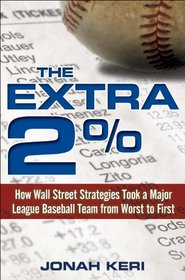I've been a fan of the Tampa Bay Rays since their early days, when they were still referred to as the "Devil Rays". I remember losing season after losing season; I remember the infamous lineup of aging bats billed as the "Hit Show", but would be more accurately remembered by putting a leading "S" in front of that advertising slogan. AND I remember going to Tropicana Field and having the staff treat me like I should be grateful to have such an opportunity to give the organization my money since they blessed us with Major League Baseball.
I also remember the turnaround when original principle owner Vince Namoli stepped aside, with Stuart Sternberg taking over the role. The way the team rebuilt itself from the minor leagues upward, and began to have some success. And how the staff often the same people were visibly glad that I came to the game, and dropped some of my hard earned money into the organzation's coffers, since there are so many other places where my discretionary entertainment dollar could have gone.
So, it was a pleasure reading Jonah Keri's, "The Extra 2%: How Wall Street Strategies Took a Major League Baseball Team from Worst to First", which described the difference between the two ownership groups and their respective philosophies, and showed how one was incredibly successful while the other failed in an epically miserable manner. It was a further pleasure as I came across individual instances that I remember reading about, or witnessing or even people who I can remember meeting and chatting with. (After all, the fan base was incredibly small in those days.)
Unfortunately, despite my incredible enjoyment of the book, I believe that the book failed in one major no pun intended aspect. The book talks about how each group took their experiences from outside baseball and applied it to running the team. It talks about how Namoli's failed while Sternberg's succeeded. However, while it stated that the team's success was thanks to Sternberg's willingness to apply philosophies from outside of baseball to improve operations and performance of the Rays, it also states that Namoli basically did the same thing, albeit from his own industry. While author Keri documented individual tales of success and failure, I don't believe he ever made clear why bringing in outside experience failed in one case and succeeded in the other. The individual instances that Keri referenced and there were many seemed to reflect on Namoli the man, not on the business background he brought into Major League Baseball. What could Namoli's "fix failing businesses" experience have done to correct his own situation while it was a situation of his own making, by the time he left it certainly WAS a failing business!!
Still, an excellent book. I admit that my fondness for the subject matter may have clouded my judgment, but I would still highly recommend it.
RATING: 4 1/2 stars, rounded up to 5 stars.
I also remember the turnaround when original principle owner Vince Namoli stepped aside, with Stuart Sternberg taking over the role. The way the team rebuilt itself from the minor leagues upward, and began to have some success. And how the staff often the same people were visibly glad that I came to the game, and dropped some of my hard earned money into the organzation's coffers, since there are so many other places where my discretionary entertainment dollar could have gone.
So, it was a pleasure reading Jonah Keri's, "The Extra 2%: How Wall Street Strategies Took a Major League Baseball Team from Worst to First", which described the difference between the two ownership groups and their respective philosophies, and showed how one was incredibly successful while the other failed in an epically miserable manner. It was a further pleasure as I came across individual instances that I remember reading about, or witnessing or even people who I can remember meeting and chatting with. (After all, the fan base was incredibly small in those days.)
Unfortunately, despite my incredible enjoyment of the book, I believe that the book failed in one major no pun intended aspect. The book talks about how each group took their experiences from outside baseball and applied it to running the team. It talks about how Namoli's failed while Sternberg's succeeded. However, while it stated that the team's success was thanks to Sternberg's willingness to apply philosophies from outside of baseball to improve operations and performance of the Rays, it also states that Namoli basically did the same thing, albeit from his own industry. While author Keri documented individual tales of success and failure, I don't believe he ever made clear why bringing in outside experience failed in one case and succeeded in the other. The individual instances that Keri referenced and there were many seemed to reflect on Namoli the man, not on the business background he brought into Major League Baseball. What could Namoli's "fix failing businesses" experience have done to correct his own situation while it was a situation of his own making, by the time he left it certainly WAS a failing business!!
Still, an excellent book. I admit that my fondness for the subject matter may have clouded my judgment, but I would still highly recommend it.
RATING: 4 1/2 stars, rounded up to 5 stars.




